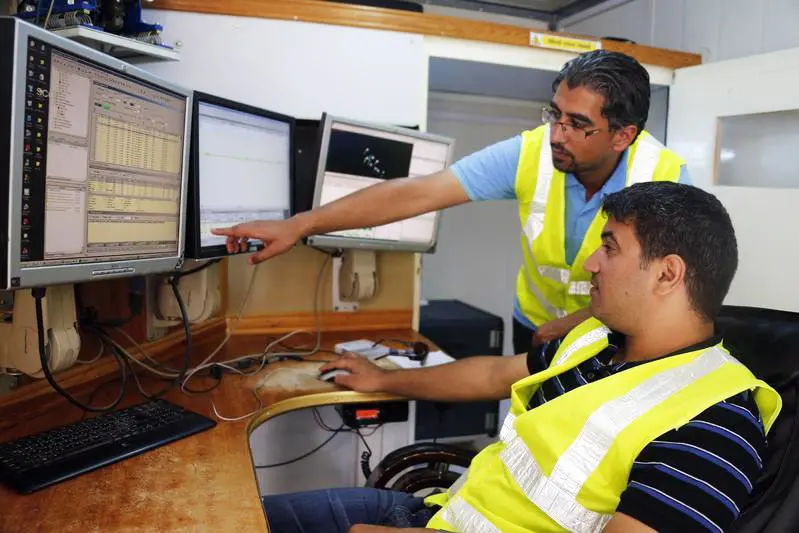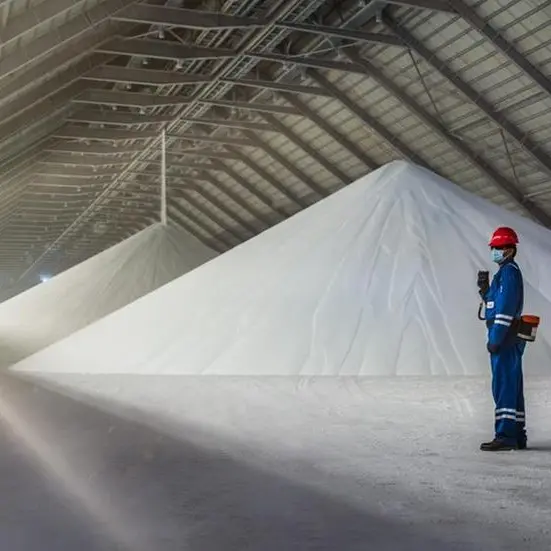PHOTO
Survey says high prospectivity for onshore oil and gas
While some locals have allegedly found small amounts of oil or gas in the Bekaa Valley while looking for an entirely different resource, namely water, there is no Lebanese version of Jed Clampett -- the fictitious US hillbilly-turned-millionaire who accidentally struck oil while not so skillfully "shootin' at some food." That said, data from a new hydrocarbon exploration survey that focused on the northern half of Lebanon as well as the coast suggest that buried a bit deeper than an errant bullet could travel, Lebanon may have onshore oil and gas deposits. Nothing is certain before drilling begins and not all deposits are necessarily commercially recoverable reserves, but prospects in the portions of the Bekaa surveyed look good. The question moving forward will be when drilling will begin and under what legal framework will it happen.
Oil, oil everywhere
Jim Hollis, CEO of NEOS GeoSolutions, likes to tell a joke. "This goes back to something I said [at a conference] yesterday, 'The first thing they teach us is: The best place to find oil is where there's oil,'" he quips in an interview with Executive some 17 hours before trotting the one-liner out again at a survey data presentation event. "We look for patterns, and what's awesome about Lebanon is, if you look around the neighborhood, there are lots of plays," he continues.
Indeed, oil and gas finds in Syria seem to follow a southwest path from the north east of the country right up to the Lebanese border. There are oil and gas fields in Israel, too. And while the geopolitical differences among the three countries are vast, NEOS GeoSolutions -- the American company that completed a survey of 6,000 square kilometers on- and offshore Lebanon -- believes that geologically Lebanon has a lot in common with both Syria and Israel. Beneath the borders none actually agree on are two resource-rich basins that all three can potentially exploit or further develop, as the case may be.
Like Wissam Chbat -- an official from Lebanon's Petroleum Administration (LPA) who gave a speech at the launch of the survey's results -- Hollis spoke rather definitively about the presence of onshore oil and gas without playing a guessing game about the amount of what might be where. Both have an interest in talking up prospectivity -- Hollis wants to sell survey data and Chbat wants to attract oil and gas companies -- that is, however, constrained by a need to maintain credibility in the future. As part of the survey results package -- which are now on sale for interested oil and gas companies -- NEOS produced a map of what Hollis described as "hot spots" or "sweet spots" deemed worthy of further investigation.
Currently, the legal framework is basically suitable
The next step from a resource development perspective would be to bring in oil and gas companies to either conduct additional, targeted surveying or to simply begin drilling, depending on a company or consortium's risk appetite. While the LPA drafted a new law that would apply to onshore exploration and production -- as the 2010 legislation that created the LPA applies only offshore -- Chbat explains that the existing legal framework allows the Cabinet to sign contracts with companies to explore and, potentially, produce whenever it sees fit. In fact, he says, in the 1950s the government granted onshore exploration and production concessions -- which never resulted in any commercially viable finds and were canceled in the 1990s. Today's Cabinet could very well do so again.
Playing by the book
"If investors want to proceed, how?" Chbat asks rhetorically while addressing an audience at the survey's data delivery ceremony. He explains that a mining law from 1933, coupled with another piece of legislation from 1975, and taken in conjunction with a 2011 Cabinet decision and a 2013 decision by the Minister of Energy and Water, together provide a legal path for the Cabinet to act without need for a completely new legal text. Passing a new legal text would require parliamentary approval, which tends to follow what experience shows can be over a decade of "debate." The Cabinet's power to move unilaterally towards onshore exploration and production is significant because, particularly in the Lebanese context, drilling onshore would be both technically easier and significantly cheaper than drilling in the country's ultra-deep offshore. "The council of ministers can issue a decree for an [onshore] exploration and production sharing agreement" similar to the one for offshore that the Cabinet has been studying for years now, Chbat says. The LPA is still pushing for totally new legislation to have a firmer legal footing down the road. However, Chbat notes, "Currently, the legal framework is basically suitable." Whether the Cabinet seizes this opportunity in light of the promising new data, though, is anybody's guess.
© Executive 2015





















